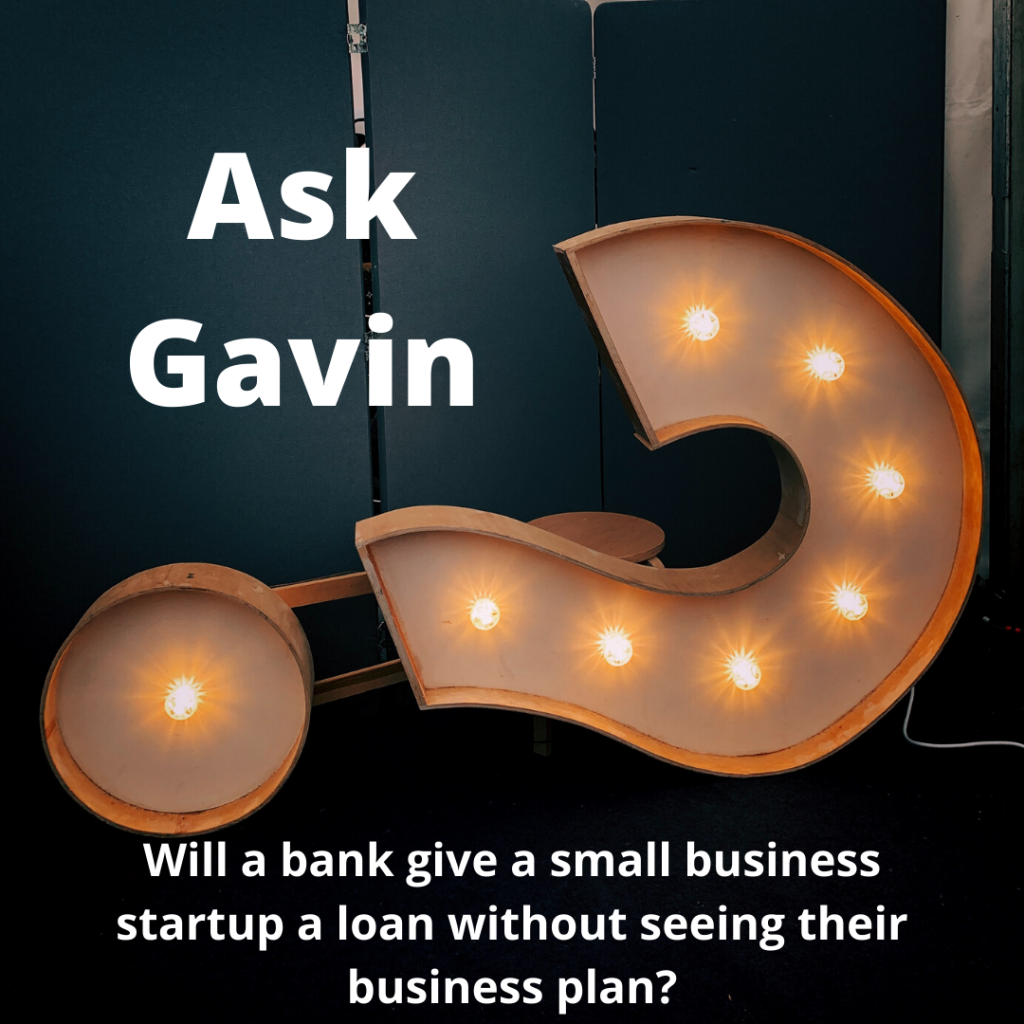
Will a bank give a small business startup a loan without seeing their business plan?
The short answer is, no. Unfortunately.
And it’s nothing to do with not having a business plan – banks just don’t tend to be that helpful when it comes to seed funding or very early-stage business finance.
You can have the most refined, most detailed, most researched, foolproof plan, including some amazing (yet realistic) financial projections, and it won’t make any difference.
Banks tend to follow a very strict eligibility criteria for business loans, and even when the business has been trading profitably for several years, if it doesn’t have sufficient equity in select assets (mainly property), they’ll award you the loan you request, but they’ll require a personal guarantee from you or another guarantor. This pretty much negates any protection that a limited company entity is designed to offer – since they’ll pursue you personally if the business defaults on the loan.
So the picture doesn’t even look that rosy when you’ve been in-business for quite some time.
Basically, running a small business successfully is extremely difficult – hence the 60% failure rate in the first 3 years of trading (in the UK, at least) – and banks are all too aware of this. They’ve witnessed too many businesses default on their loans – and bad debt is bad news when it comes to generating returns on their capital.
For this reason, they look for surety when it comes to lending eligibility – not plans and promises.
They know, if you own a property (or a sizeable chunk of equity in a property) and you fail to repay your loan by the original means of payment (successful business trading), they can repossess that asset, dispose of it, and recover sufficient capital to negate the bad debt you have presented them with.
You may find that some ‘startup’ or ‘new business’ current accounts come with the offer of an unsecured loan or overdraft – but you’ll also find the amount of funding offered through these means to be meagre.
We once opened a Barclays business account for one of our startups, since it came with the promise of unsecured funding – which we later discovered to be just £1,000.
The only productive advice I can offer in regards to attaining bank funding at such an early stage of starting a business, is to seek to offer the surety they will be looking for in the arrangement.
Maybe look to attain ‘pre-orders’ from customers for your product or service, something legally binding with your customers that will create an obligation for them to pay a remaining balance upon delivery of the goods/service.
This way, the bank could try to fit this peg in their ‘invoice financing’ hole (typically offered to B2B businesses, where they will fund full invoice amounts and collect the credit-term payment directly from your customer – so you get paid up-front for your orders, but still get to offer credit terms to your customers).
Or beyond this, be prepared to show evidence of some other form of secure income, that would be sufficient to make repayments on the loan if the business fails to.
Go into your meeting with them with the assumption that they will value your business idea/business startup at £0 – so you’ll need to prepare and have some aces up your sleeve to throw their way.
At the end of the day, banks are not imaginative, they are far from entrepreneurial, and have zero vision (they can only see as far as their monthly P+L reports).
Don’t expect them to show the same level of excitement and enthusiasm for your plans as you have.
If you want money from them, you have to adapt to their methods and principles.
The riskiness of startup investment renders the funding avenues at early stages very limited, and very difficult to attain.
If you can find a way to bootstrap your way to a revenue-generating model (think MVP, Minimum Viable Product), then you’ll be in a far better position to access finance for growth from this point onwards.
The takeaway is, try to do the first part on your own.
In my personal experience I’ve learnt you have to start something from nothing, to be able to convince others to risk their capital on your business.
I hope this answers your question – Will a bank give a small business startup a loan without seeing their business plan? And I wish you all the success with your venture.
If you need any help or assistance during the journey, check our my Udemy course Fast Track Entrepreneur.

